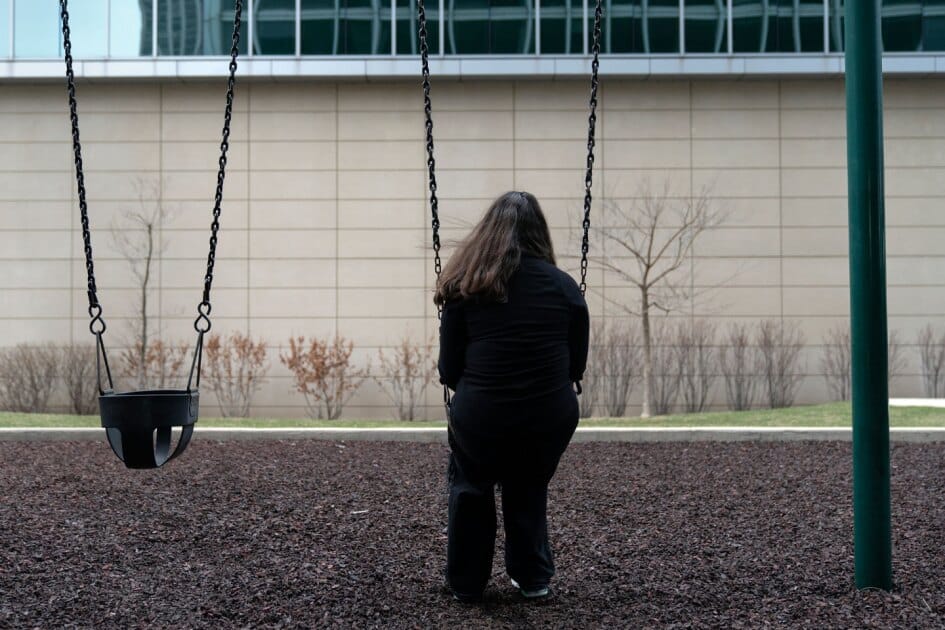The U.S. Department of Education is setting new priorities for roughly $1 billion in school mental health funding after the agency abruptly told former grant recipients their awards would end because they reflected Biden administration policies.
The department, which is expected to publish the proposed priorities in the Federal Register on Thursday, will prioritize recruitment and retention incentives to increase the ranks of credentialed school psychologists and the “respecialization” of people who work in related fields so they can more quickly be certified as school psychologists.
The Education Department said in the document outlining the proposed priorities that it will also prohibit “the use of program funds for promoting or endorsing gender ideology, political activism, racial stereotyping, or hostile environments for students of particular races.”
The new priorities come after the department in April notified recipients who received multiyear awards under two grants—the School-Based Mental Health Services Grant Program and the Mental Health Service Professional Demonstration Grant Program—that the funding would end at the conclusion of their current budget period; recipients said at the time that was Dec. 31.
In its message to recipients, the Education Department said it planned to “re-envision and re-compete” the grants based on its new priorities—“merit, fairness, and excellence in education.”
The discontinuation of the funds prompted 16 Democratic state officials to file a lawsuit in federal court earlier this month, arguing that the department’s decision will cause staff layoffs, dry up scholarships for college students who want to be mental health professionals in K-12 schools, and worsen outcomes for hundreds of thousands of students.
The Education Department will accept comments on the proposed priorities, grant requirements, and definitions for 30 days after the July 17 publication in the Federal Register.
What the new priorities say
The two grant programs received a bipartisan infusion of federal funding in recent years after 19 students and two teachers lost their lives in a school shooting in Uvalde, Texas. The Trump administration is now proposing that both will prioritize recruitment and retention of school-based mental health professionals, particularly in high-need schools.
Grants awarded during the previous cycle supported 260 recipients in 49 states, helping them prepare more than 14,000 mental health professionals to work in K-12 schools, the Biden administration said at the time.
Madi Biedermann, a spokesperson for the department, said the agency will use fiscal year 2025 and 2026 funds allocated in the Bipartisan Safer Communities Act for the new awards. The department declined to answer how much funding was left after the previous grant period.
“The Trump administration will review applications based on detailed plans to address the unique mental health needs of a community and pathways to getting high-quality mental health professionals in K-12 schools,” Biedermann said.
The School-Based Mental Health Services Grant Program proposals ask state education offices and districts to propose plans to recruit and retain credentialed school psychologists in high-need districts, which it defines as having a ratio of more than 500 students to one school psychologist; high rates of violence, poverty, substance use, suicide, trafficking, or other “adverse childhood experiences”; experience with a traumatic event since the start of the school year; and previous receipt of a Project School Emergency Response grant from the Education Department.
States and districts are also asked to propose plans to grow the numbers of school psychologists who provide intensive mental health services and early intervention and to build capacity to continue the services beyond the grant period.
States can also propose respecialization plans, which would help professionals who have a degree in related fields—such as special education, clinical psychology, or community counseling—obtain a license or certification as a school psychologist.
The Mental Health Service Professional Demonstration Grant Program proposal is largely similar, asking applicants to propose projects designed to train and place school psychology graduate candidates in high-need districts to complete their degrees or increase the ranks of school-based staff who provide intensive services.
Where Trump admin. priorities differ from the Biden administration
The Trump administration’s proposed priorities for both grant programs zero in on a shortage of school psychologists, whereas the Biden administration focused on boosting the ranks of school counselors and social workers, too.
The Biden administration’s priorities for both grant programs, finalized in 2022, also emphasized having school-based mental health providers come from diverse backgrounds, including from the communities of the students they’d be serving. The Mental Health Service Professional Demonstration Grant also prioritized applicants proposing partnerships with historically Black colleges and universities, tribal colleges and universities, and minority-serving institutions.
In terminating the current grant cycle, an Education Department spokesperson said the Biden administration had “deeply flawed priorities” that caused grant recipients to “implement race-based actions like recruiting quotas in ways that have nothing to do with mental health and could hurt the very students the grants are supposed to help.”
But former department staff and other mental health advocates chafed at the depiction. The Biden administration defined “diversity” expansively and built a focus on diversifying the pipeline of mental health professionals into the grant competition, due to research showing that students can do better when they see professionals—educators and mental health specialists—who reflect their community, a former Education Department official said at the time of the grant terminations.
Advocates also argued that the grants were already supporting the training, hiring, and retention of staff and that it was unwise to terminate work that was in progress.
2025-07-16 18:35:18
Source link

